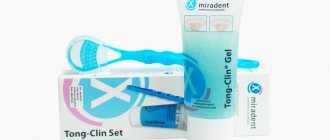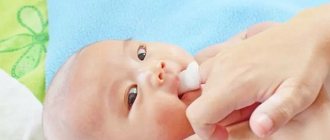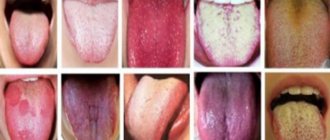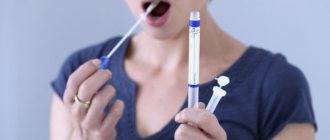- home
- Urology Clinic
- Surgical urology
- Removal of condylomas in men
Condylomas (genital warts) are a type of viral wart, which is a papillary growth on the skin or mucous membrane. Genital warts in men are localized in the intimate area and often go unnoticed. The height above the skin is 0.2 cm, externally they have a flesh-colored or grayish color. Benign formations of small size, which are found on the penis, scrotum and around the anus.
Treatment of condylomas in men should begin immediately after detection. We invite you to make an appointment with urologists. We guarantee complete confidentiality. Doctors specialize in the treatment of viral infections of the intimate areas. KDS Clinic performs removal of condylomas in men using the Surgitron device.
Symptoms of condylomas
Single neoplasms are difficult to detect and there is no pain syndrome. Condylomas do not bother the patient and do not affect the quality of sexual life. Formations are detected by touch or upon examination.
Papillomas in the urethra in men, around the head of the penis, around the anus and on the scrotum are common places for growths to occur. HPV is found in warm, moist places, so the folds of the genitals and anus are likely places where growths are found.
If the disease is not treated, it will progress, eventually the papillomas will grow together, protrude more above the surface of the skin, and the appearance will resemble cauliflower.
Fused papillomas affect a large area on the genitals, and then the symptoms of the disease become obvious:
- Pain during sexual intercourse. Growths on the head of the penis interfere with penetration and cause discomfort to partners.
- Itching, redness of the affected area, irritation. During friction, the growths become injured, bleed and itch.
- Difficulty urinating. Those papillomas that have grown in the urethra will interfere with normal urination.
If a man develops condylomas on the head of the penis, this is the first sign that the human papillomavirus (HPV) has entered the body.
You can get infected in several ways:
- sexual intercourse – this includes vaginal, oral or anal intercourse. When healthy mucous membranes come into contact with infected genitals, infection occurs;
- at home, 20% of those infected caught the virus due to insufficient hand hygiene, sharing personal hygiene items (washcloth, toilet rim, underwear, towels);
The absence of tumors on a man’s genitals does not mean that the person has not become a carrier of the HPV virus. If a person has a strong immune system and leads a healthy lifestyle, the body resists the virus, stopping the progression of the disease.
Decreased immunity often causes growths to appear. There are factors that negatively affect the body's immune system:
- recurrent colds;
- hypothermia;
- unbalanced, meager, monotonous nutrition;
- regular neuroses, stress, overwork, lack of sleep;
- smoking and alcohol abuse;
Doctors recommend regular examinations to ensure the absence of the virus, and that the man’s sexual partner also be examined.
Prevention
Strong immunity, hygiene and safe sex are the best prevention of infection with genital warts.
- strengthening and maintaining the body’s defenses (immunity) at a high level;
- maintaining a healthy lifestyle: good fortified diet, adequate sleep, moderate physical activity;
- complete cessation of bad habits: smoking, alcohol, taking various medications;
- If possible, avoid stressful situations, increase mental stability;
- monitoring the general condition of the body, regular preventive examinations by doctors, laboratory diagnostics;
- timely treatment and control of chronic diseases;
- maintaining a sexual life with a regular partner, following the rules of contraception;
- avoid injuring the skin of the penis and adjacent areas to avoid infection;
- careful adherence to the rules of personal and intimate hygiene.
Compliance with medical recommendations and monitoring the state of the immune system prevents the development of viral activity and associated complications. The patient will get rid of the infection by carefully following the doctors' instructions, changing his lifestyle and streamlining his sex life. Self-medication in such cases is strictly contraindicated.
Preparing for treatment
Before starting treatment for papilloma, the doctor conducts a thorough examination of the man’s groin under magnification, makes a diagnosis, and studies tests.
The effectiveness of treatment depends on the correct diagnosis:
- Oral interview with a venereologist, taking an anamnesis.
- If the head of the penis, urethra or urethra is affected, consultation with a urologist is indicated.
- You need to be tested for HPV using the PCR method (scraping from the genitals), for AIDS, HIV and syphilis.
- Examination of the anus by a proctologist.
- Getting tested for STDs.
After all the tests are ready, the doctor will select the appropriate method for treating and removing papillomas for the man. Tumors can be removed only if the man does not have infectious or viral diseases in the acute stage.
Causes of growths under the tongue
Formations on the tissues of the tongue and oral mucosa appear when the growth mechanism of epithelial cells fails. This process is provoked mainly by condylomatosis or the so-called papilloma virus. The disease is considered insidious due to hidden symptoms at an early stage of development, which complicates early diagnosis. In addition, it is contagious, the virus is transmitted even through kisses and shared household items, not to mention closer contacts of partners (sex of different types).
Children can become infected with condylomatosis at birth from an infected mother, therefore, when the disease is detected in a pregnant woman, it is recommended to allow labor by cesarean section.
Treatment of papilloma virus in men
If a man has condylomas on the head of the penis, treatment is carried out in two directions:
- Remove growths.
- Conduct shock antiviral therapy.
None of them have any advantages, since the doctor prescribes treatment based on their examination data and the tests obtained. Often these treatments are complementary to each other.
Drug therapy complements the process of removing papillomas in men. With its help, the immune system is strengthened to avoid relapse, since removal of papillomas again brings the patient to the doctor with the same symptoms of the disease in 30% of cases.
The patient is prescribed immunostimulants: polyoxidonium, immunal, cycloferon, etc. These drugs are prescribed only by a therapist or urologist.
Diagnostics
If characteristic growths are detected in the oral cavity, you should contact one of the recommended specialists (depending on the location of the focal zone):
- dentist;
- otolaryngologist;
- dermatovenerologist.
It would also be a good idea to visit an oncologist to rule out the possibility of developing a tumor of malignant origin.
Diagnosis of condylomatosis and other diseases associated with the formation of growths under the tongue consists of the following steps:
- visual examination by a doctor;
- taking anamnesis;
- laboratory research;
- histology.
Important
If papillomas appear on the head of a man’s penis, then curing them will not be easy, and the removal procedure will be painful.
First of all, doctors recommend that a man avoid promiscuous sex and use barrier contraception.
With early prevention and a negative test for the virus, a healthy man is offered vaccination against HPV. If the virus is detected, but papillomas have not yet had time to manifest themselves, it is advised to strengthen the immune system in order to avoid their growth.
There are several ways to strengthen your immune system:
- Improve your diet, add a vitamin-mineral complex or foods enriched with beneficial microelements and substances.
- Exercise.
In winter and in the off-season, immunologists advise strengthening the immune system with vitamin complexes and antiviral drugs.
Effective methods of traditional medicine
Not only traditional, but also folk medicine can tell you what to do to heal ulcers in the mouth under the tongue. Our great-grandmothers used their own recipes that helped them overcome this disease.
Condyloma acuminata can develop into cancer
As soon as a person discovers a painful rash under the tongue, he should immediately rinse his mouth thoroughly. This is the most effective method of combating the disease. The easiest way to rinse your mouth at home is with a solution based on baking soda. To make it, you need to mix one teaspoon of the product in a glass of warm water. Additionally, you can apply a paste of the same soda to the affected area.
Herpes inflammation of the tongue in an adult
Fans of radical methods of getting rid of mouth ulcers can try treating them with salt. It also needs to be rinsed. A teaspoon of salt should be mixed in one glass of water. It is allowed to add a couple of drops of iodine to the medicinal solution to enhance the effect.
It is necessary to rinse your mouth with salt or soda every three to four hours.
It is also recommended to carry out the procedure after eating. Rinse can be prescribed even for children, as it is completely harmless.
Soda and honey - folk remedies
Natural honey will help disinfect an inflamed wound and speed up its healing. Children will especially like this method of getting rid of unpleasant rashes under the tongue. To remove the ulcer, you need to slowly dissolve a piece of honey. You should also chew honeycomb or propolis. All these bee products have the same healing effect.
A cyst under the tongue requires surgical removal
To quickly get rid of ulcers in the tongue area, you need to use medicinal herbs.
Urologists
Erkov Igor Viktorovich Urologist andrologist
Cost of admission 2500
₽
Make an appointment
Fomenko Alexander Pavlovich Urologist andrologist
Cost of admission 2500
₽
Make an appointment
Stomatitis on the tongue in adults photos
The human oral cavity contains many microorganisms, some of which are opportunistic in nature. If there are provoking factors (injuries, low immunity, and so on), the colony of bacteria actively grows, which leads to stomatitis. The disease manifests itself in the form of a characteristic plaque. In the photo of stomatitis on the tongue it has a white color.
If the pathology manifests itself only on the tongue, then in medical practice it is usually called glossitis. In the treatment of the disease, medications are mainly used, the action of which is aimed at relieving symptoms and eliminating the cause of the development of stomatitis.
Diagnostic methods
A preliminary diagnosis is made based on the patient's complaints and examination of the oral cavity. The doctor must take a swab from the tongue, through which the true cause of the disease (causative agent) is revealed. Additionally, a blood test is prescribed.
If the diagnosis does not reveal the causative agent of glossitis, other procedures are performed. In particular, the body’s reaction to certain substances is assessed (the allergen is determined) and the digestive organs are examined.
Causes
What stomatitis looks like on the tongue depends on the cause of glossitis. Often the disease occurs against the background of weakened local or general immunity. The first is caused by the following factors:
- damage to the oral mucosa (trauma, burns);
- insufficient oral hygiene;
- doctor errors made during the installation of orthodontic structures (prostheses, braces, etc.);
- dental diseases (caries, periodontitis);
- consumption of solid foods leading to injury to oral tissues.
General immunity is weakened under the influence of systemic factors:
- hormonal imbalance (endocrine diseases, pregnancy, etc.);
- course of infectious and fungal diseases, bacterial infection;
- long-term use of medications;
- excessive consumption of alcoholic beverages, smoking;
- infection with worms;
- pathologies of the digestive system;
- blood diseases.
Stomatitis under the tongue also develops against the background of many other pathologies. The true cause of glossitis can only be determined through a comprehensive examination of the patient.
Self-medication in such circumstances is contraindicated, since the use of medications often provokes an allergic reaction, which intensifies the course of stomatitis.
Complex therapy
Treatment of glossitis requires an integrated approach. It provides for a number of activities:
- relief of symptoms of pathology;
- elimination of the influence of the provoking factor;
- treatment of concomitant diseases.
At the same time, medications are prescribed whose action is aimed at accelerating the healing process of damaged tongue tissue.
With stomatitis, an important condition for successful recovery is adherence to a strict diet. It involves avoiding the consumption of fatty, spicy and other foods that irritate the oral mucosa.
General treatment
Regardless of the form of glossitis, drugs that suppress pain are prescribed. The following medications are used for these purposes:
There are several types of painkillers:
In the treatment of glossitis, medications are used whose action is aimed at suppressing the inflammatory process and the activity of pathogenic microflora in the mouth. They are also used for all types of stomatitis on the tongue. These include:
Taking anti-inflammatory and antiseptic drugs must be combined with regular rinsing of the mouth. In addition, vitamin complexes are prescribed to strengthen the immune system.
Treatment of candidal glossitis
Treatment of candidal stomatitis involves local therapy. Before starting the procedure, you should take painkillers:
Treatment of candidal glossitis is carried out with broad-spectrum antifungal drugs or drugs that suppress the activity of fungi of the genus Candida. At the beginning of each procedure, it is recommended to treat the oral cavity with an antiseptic. To do this, use solutions:
Less commonly, hydrogen peroxide is prescribed for antiseptic treatment. It is recommended to repeat the procedure every 3-4 hours during the day. Upon completion of treatment, antifungal drugs are applied to the affected areas.
The choice of medication depends on the form of glossitis. At the initial stage of disease development, the following are used:
- soda solution;
- borax with glycerin;
- 5 percent levorin ointment;
- 2% solution of methylene blue;
- "Iodinol."
Good results in the treatment of candidal glossitis can be achieved by regularly treating the affected area with Nizoral, Diflucan or Nystatin. It is recommended to apply medications to the tongue for several days after the white coating disappears.









